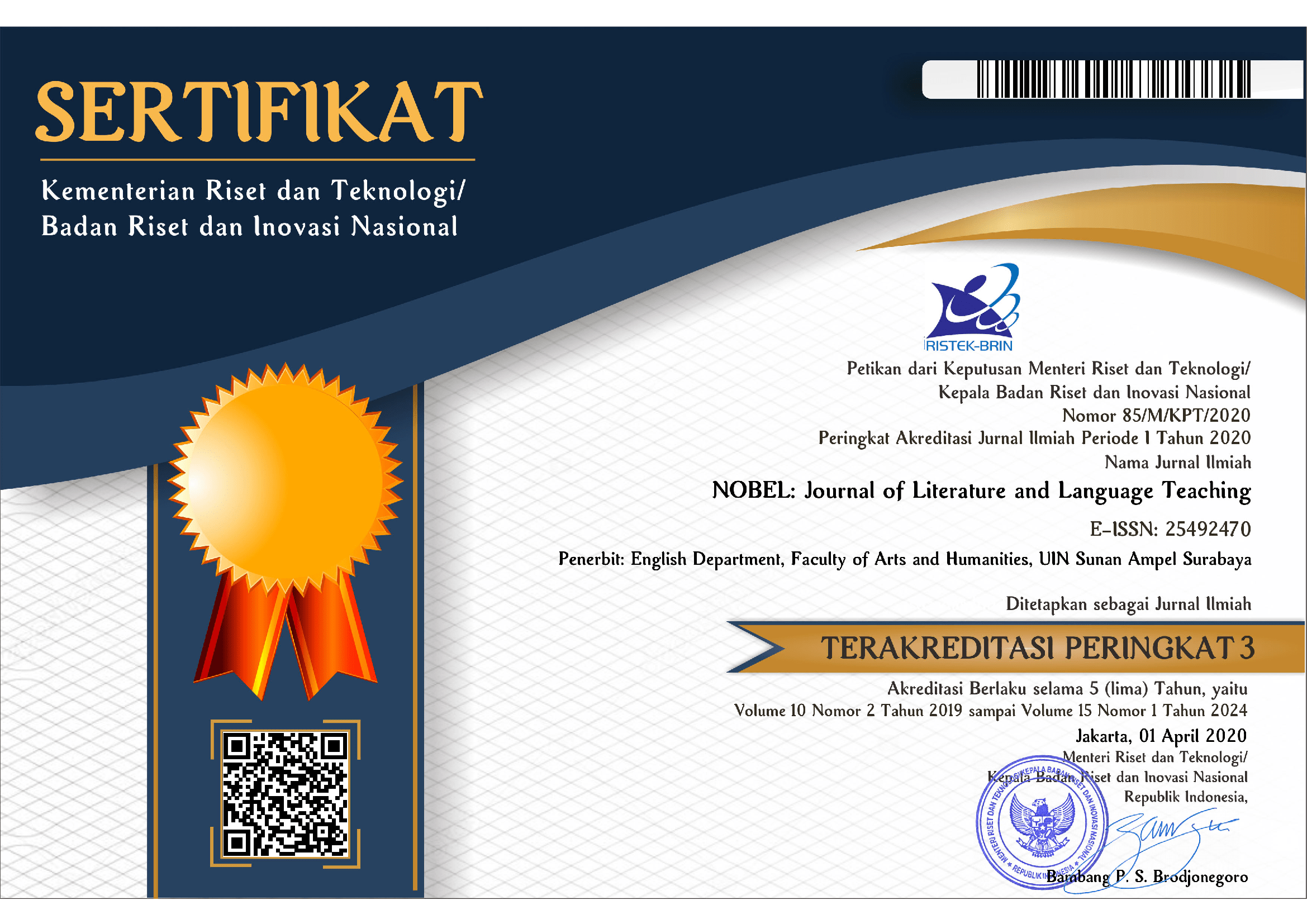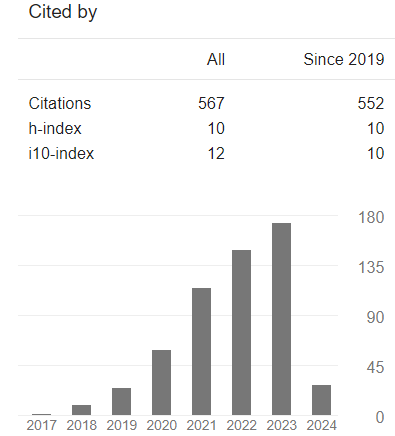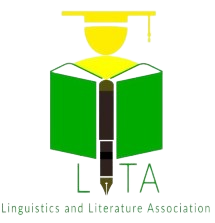The Genesis African-Identity-Crisis through Wole Soyinka’s Death and King’s Horseman
DOI:
https://doi.org/10.15642/NOBEL.2021.12.2.158-167Keywords:
Africa; Colonialism; Culture; Identity; WestAbstract
The main thrust of this study was to explore the genesis of the African identity-crisis from the (pre) colonial times to the post-colonial age. The colonialists revolutionized the cultural backdrop of Africa and imposed European values upon African natives. This affected the social, economic, and political identities in Africa. Today, the imagination of identity-crisis in the African continent is appalling. Notwithstanding her potential to grow socio-economically and politically due to the dispensation of emancipation, Africa is still at the periphery of identity-crisis. This qualitative paper argued that the jeopardy of African culture bred identity crisis in the contemporary states of Africa that hinders the continent from progressing. The hegemony of Europeans threatened to bring African culture to a dead end. This is exemplified by Soyinka’s Death and the King’s Horseman, which mirrors the propagation of Western ideologies that Africans ultimately became infatuated with to a degree of perceiving their own culture as unsophisticated. This is developed through the wilful relinquishment of African cultural practices because of European intervention.
Downloads
References
Ahenkan, A., & Osei-Kojo, A. (2014). Achieving sustainable development in Africa: Progress, challenges and prospects. International Journal of Development and Sustainability, 3(1), 162–176. www.isdsnet.com/ijds
Anyaehie, M. C. (2013). Appraisal of African identity for sustainable development. Open Journal of Philosophy, 03(01), 150–154. https://doi.org/10.4236/OJPP.2013.31A025
Bakay, G. (2015). A challenge to western cultural beliefs: Wole Soyinka’s death and king’s horseman. Journal of Modern Education Review, 5(5), 510–516. https://doi.org/10.15341/jmer(2155-7993)/05.05.2015/009
Baloyi, L. J. (2008). Psychology and psychotherapy redefined from the view point of the African experience [University of South Africa]. https://uir.unisa.ac.za/handle/10500/1346
Baloyi, L., & Makobe-Rabothata, M. (2014). The African conception of death: A cultural implication. The 21st International Congress of the International Association for Cross-Cultural Psychology, 232–243. https://scholarworks.gvsu.edu/iaccp_papers/119/
Crow, B., & Banfield, C. (1996). An introduction to post-colonial theatre. Cambridge University Press.
Encarta, E. (2009). African Mask. Microsoft Corporation.
Fleming, T., & Falola, T. (2005). Africa’s media empire: Drum’s expansion to Nigeria. History in Africa, 32(2005), 133–164. https://doi.org/10.1353/HIA.2005.0008
Frederick, C. J. (2009). Death and Dying. Microsoft Corporation.
Gargati, M. U. (2010). A Deconstructive Reading of Wole Soyinka’s Death and The King’s Horseman And The Road. Ahmadu Bello University.
Giddens, A. (2006). Sociology (5th ed.). Polity Press.
King, L. M. (2013). In discourse-toward a pan-African psychology: Drum rolls for a psychology of emancipation. Journal of Black Psychology, 39(3), 223–231. https://doi.org/10.1177/0095798413478076
Montle, M. E. (2020). Debunking Eurocentric ideals of beauty and stereotypes against African natural hair(styles): an Afrocentric perspective. Journal of African Foreign Affairs, 7(1), 111–127. https://journals.co.za/doi/abs/10.10520/EJC-1d59060f0e
Msiska, M.-H. (2007). Postcolonial identity in Wole Soyinka. Rodopi.
Roscoe, A. (1977). Mother is gold: A study in west African literature. Cambridge University Press.
South African History Online. (2005). South African History Online (SAHO). https://www.sahistory.org.za/about-us
Soyinka, W. (1975). Death and the king’s horseman. W.W. Norton and Company.
Sudha, K. P. (2004). Soyinka’s vision of life as projected in his major works. University of Calicut.
Williams, R. (2008). Civil and religious law in England: A religious perspective. Ecclesiastical Law Journal, 10(3), 262–282. https://doi.org/10.1017/S0956618X08001403
Downloads
Published
How to Cite
Issue
Section
License
Copyright (c) 2021 NOBEL: Journal of Literature and Language Teaching

This work is licensed under a Creative Commons Attribution 4.0 International License.







